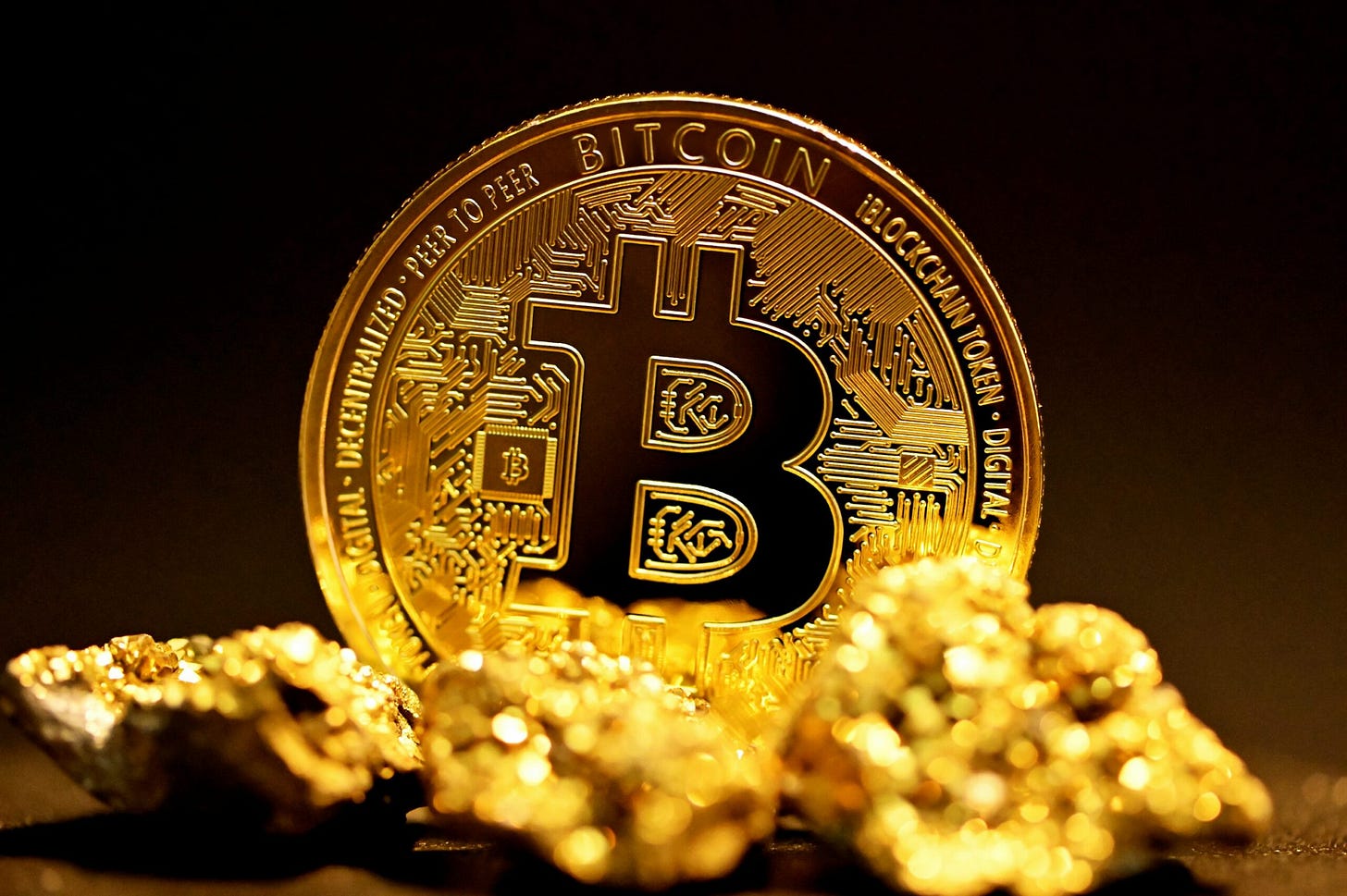Will Bitcoin outshine gold in 2025? When will the markets finally wake up
With gold up 33.4% this year and Bitcoin stagnating, investors are reconsidering whether Bitcoin really deserves its "digital gold" crown.
The narrative around Bitcoin as the "digital gold" was everywhere in 2024. Back in 2021, a Deutsche Bank article titled "I could potentially see bitcoin become the 21st century gold" suggested that Bitcoin might evolve into a modern store of value much like gold. Now in 2025, that prediction is looking increasingly shaky.
Gold soars while Bitcoin lags behind
As of 22 April 2025, the price of Bitcoin sits around $90,300, reflecting a significant year-to-date loss. In contrast, gold is trading at approximately $3,340 per ounce, up a whopping 33.4% since January. Has something changed?
While both assets have traditionally been seen as safe havens in times of macroeconomic uncertainty, Bitcoin’s rise is being driven by more than just fear. It is being propelled by growing institutional adoption, favourable regulation, and increasing demand for self-custody in a world of rising sovereign debt.
Bitcoin as a macro hedge
Historically, gold has served as a hedge against inflation and currency debasement. Bitcoin is now emerging as a rival, especially for younger investors and institutions that favour digital-native assets. With its fixed supply of 21 million coins, Bitcoin offers the kind of long-term scarcity that fiat currencies and even gold cannot fully guarantee in the modern financial system.
Institutional players such as BlackRock and Fidelity have launched Bitcoin ETFs. Pension funds and sovereign wealth funds are beginning to allocate small percentages of their portfolios to bitcoin. The asset has also been bolstered by favourable political developments in the United States, where a pro-crypto administration is streamlining regulation.
Technological superiority and accessibility
Unlike gold, bitcoin is divisible, transportable, and can be self-custodied without the need for a trusted intermediary. These advantages make Bitcoin more accessible, especially in developing markets where physical gold storage is impractical or risky.
Furthermore, the growth of the Lightning Network and other solutions is allowing Bitcoin to be used not just as a store of value but also as a medium of exchange. This is something gold has not achieved on a meaningful scale in the modern era.
Changing investor perception
What’s most significant in 2025 is the shift in sentiment. Gold still enjoys respect as a historic store of value, but Bitcoin is increasingly being seen as the future-facing equivalent. A growing number of analysts are referring to bitcoin as the "Millennial gold," and that narrative is beginning to affect portfolio allocations.
Even central banks are exploring the idea of holding Bitcoin, a notion once radical. While this shift will take time, the fact that it is being discussed at all is telling.
Conclusion: the future is digital
Bitcoin is no longer simply an asset for speculation. It is becoming institutionalised, integrated, and increasingly respected. While gold continues to play a role in portfolio diversification, Bitcoin is gaining ground as the preferred store of value for a new generation of investors. In 2021, Deutsche Bank saw the potential. In 2025, that potential is being realised. The only question now is, will Bitcoin catch up to gold, or will gold sell off and catch up with Bitcoin? Only time will tell.


